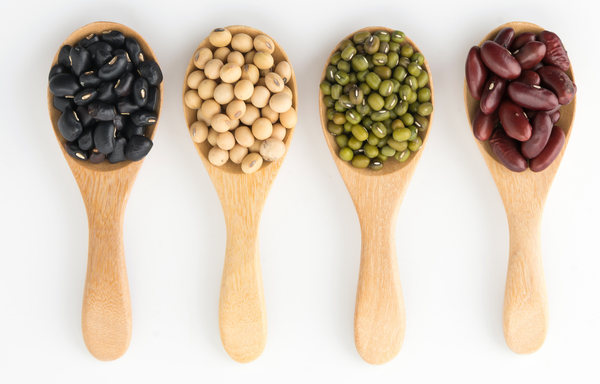

The Bean Dilemma: Nutritious but Not Insulin-Friendly
Are Beans the Best Choice for a Low Insulin Lifestyle?
Beans are often praised as a nutritional powerhouse, loaded with protein, fiber, vitamins, and minerals. They are a staple in many diets, especially for vegetarians and vegans. But if your goal is to lower insulin levels, beans might not be the best fit for your metabolism.
The Nutritional Profile of Beans
There is no doubt that beans provide essential nutrients:
- Protein – A good plant-based source of protein.
- Vitamins and Minerals – High in folate, iron, and magnesium.
- Fiber – Supports digestion and gut health.
However, beans are also packed with starch, meaning they contain a significant amount of glucose. When eaten, this glucose triggers the release of insulin to manage blood sugar levels. More glucose means more insulin, which can work against those trying to keep insulin levels low.
Better Alternatives for Nutrients
The nutrients found in beans can easily be obtained from other foods that do not spike insulin as much:
- Non-Starchy Vegetables – Spinach, kale, broccoli, and bell peppers provide similar vitamins and minerals without the high starch content.
- Nuts and Seeds – Almonds, chia seeds, and pumpkin seeds offer protein, fiber, and healthy fats with a lower insulin response.
- Whole Fruits – Berries and apples supply fiber, antioxidants, and vitamins without dramatically raising blood sugar.
- High-Quality Protein – Lean meats, fish, and eggs provide protein and essential nutrients without excess glucose.
No matter your dietary preferences, you can get all the nutrients you need from foods that have a lower impact on insulin.
Why Beans Might Not Fit a Low Insulin Lifestyle
While beans are nutritious, their high starch content makes them less ideal for those working to lower insulin levels. Even though they are full of beneficial nutrients, the glucose they provide requires a significant amount of insulin to process, which can disrupt metabolic health.
Just because a food is nutritious does not mean it is the best choice for your metabolism. If you are focused on reducing insulin, it is important to choose foods that provide essential nutrients without triggering large insulin spikes.
The Bottom Line
Beans have plenty of health benefits, but they may not be the best option for those trying to lower insulin levels. Choosing non-starchy vegetables, nuts, seeds, whole fruits, and high-quality proteins allows you to get the same nutrients without the insulin spike.






















